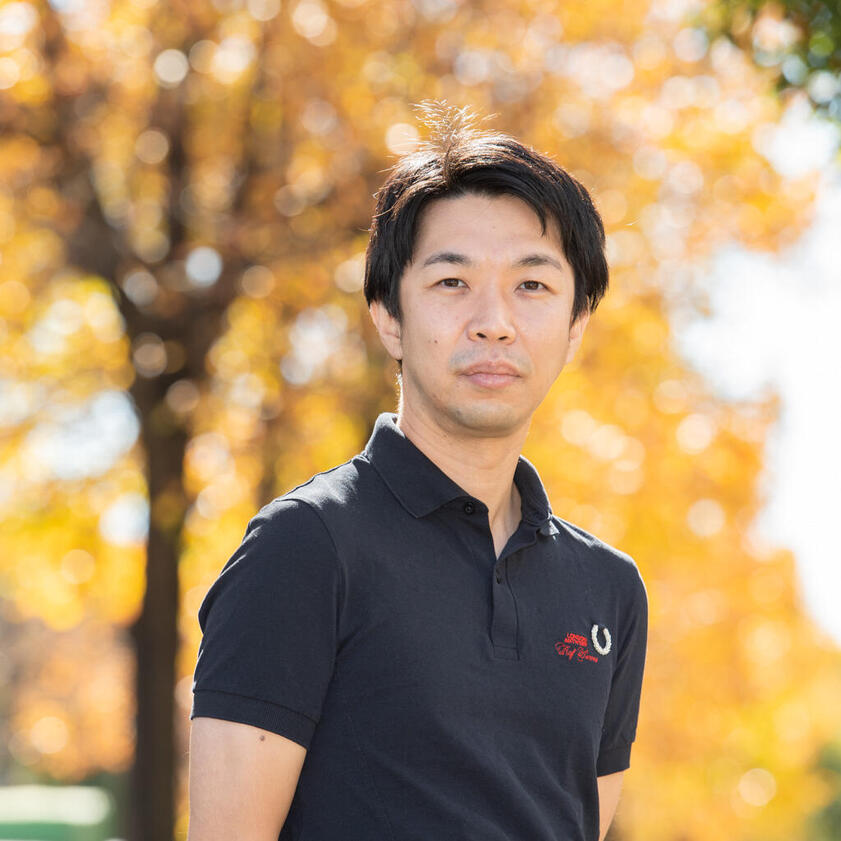Professor Ryuichiro Higashinaka

Researchers'
Lecturer
Yoshitaka Sato
Graduate School of Medicine
My graduate school advisor would often use this phrase. As someone who is cautious and indecisive by nature, I use this phrase to encourage myself to freely pursue my research in a way that fits my interests and ideas. At the same time, freedom comes with responsibility, so I focus on conducting my research in a way that I can be proud to share with others.
My goal is to clarify what determines the fate of virus-infected cells. Some cells (hosts) are infected when viruses infiltrate them, but others are not. Moreover, virus infection causes a wide range of diseases. What determines how a virus induces these heterogenous phenomena? To understand this, I study both viruses and hosts.
Cells infected with Epstein-Barr virus was labelled with green. A certain viral gene (red) was expressed in a small subset of infected cells, showing a heterogeneous population of virus infected cells.
I was lucky enough to have the opportunity to make a presentation to a famous overseas university professor who was an acquaintance of my advisor. After the presentation, the professor said to me, "Whichever field you choose, you absolutely must continue as a researcher!" This motivated me to become a researcher.
"Preventing infection" and "discrimination" are different things. While working as an intern, I treated a patient who was infected with a virus. This patient refused to accept the fragmentary information from the health personnel, leading to misunderstandings that caused suffering for the patient and their family. To prevent tragedies like this, as an educator, I strive to transmit accurate knowledge in undergraduate education. In particular, I believe it is important for people to not allow themselves to be manipulated by information and to differentiate incorrect from correct information and be cautious of the virus appropriately.
I once went about a year without getting any positive results, but with the help of a slight clue, I managed to find a partner for a collaborative study and immediately started making progress in my research and was able to present my results prior to my competitors. To break through barriers, it is important to collaborate with others rather than striving on your own. Therefore, I place great importance on encounters and connections with others.
Research is interesting when you observe a phenomenon that no one else has been able to see. There’s a sense of exhilaration and enchantment when you get results that back up your ideas. These moments are few and far between, but if you are patient, you experience them from time to time.
I try to walk a straightforward path in life, but sometimes the path in front of me is overgrown, and things don’t go the way I would like. I come out the other side with scratches all over. These wounds have not healed to the extent I can be comfortable talking about them. Sorry.
Facing the COVID-19 crisis has given us a clearer view on certain themes that are yet to be addressed by researchers. We need to work on these themes in collaboration, not only with traditional virus researchers but with researchers in other fields as well. Please lend us a hand. We are striving toward a world where no one has to suffer from viral infections.
Name: Yoshitaka Sato
Affiliation: Graduate School of Medicine
Title: Lecturer
Career history and hobbies:
After graduating from the Department of Chemistry and Biotechnology, School of Engineering, Nagoya University in 2004, he joined the Division of Oncovirology at the Aichi Cancer Center Research Institute. He then completed the Doctor of Medicine program at School of Medicine, Kobe University, and obtained a doctoral degree (Medical science) from Nagoya University Graduate School of Medicine in 2013. Following his initial internship in 2015, he returned to Virology at the Nagoya University Graduate School of Medicine. Since 2015, he has been working as a medical doctor at Department of Infectious Diseases, Nagoya University Hospital (concurrent post). In 2019, he was elected a PRESTO researcher of the Japan Science and Technology Agency (JST; concurrent post).
Hi hobbies include tea ceremony (Urasenke), running, and exploring the city.